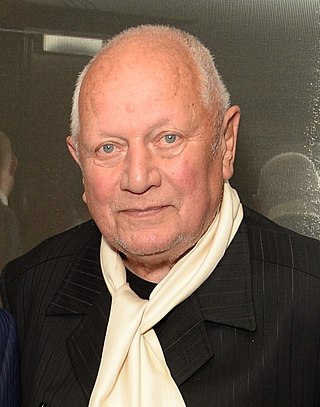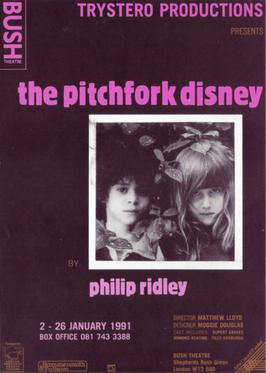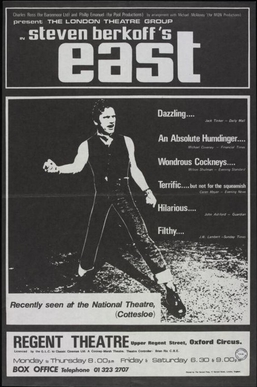
Sarah Kane was an English playwright, screenwriter and theatre director. She is known for her plays that deal with themes of redemptive love, sexual desire, pain, torture—both physical and psychological—and death. They are characterised by a poetic intensity, pared-down language, exploration of theatrical form and, in her earlier work, the use of extreme and violent stage action.

Steven Berkoff is an English actor, author, playwright, theatre practitioner and theatre director.
In-yer-face theatre is a term used to describe a confrontational style and sensibility of drama that emerged in Great Britain in the 1990s. This term was borrowed by British theatre critic Aleks Sierz as the title of his book, In-Yer-Face Theatre: British Drama Today, first published by Faber and Faber in March 2001.
David Harrower is a Scottish playwright who lives in Glasgow. Harrower has published over 10 original works, as well as numerous translations and adaptations.
Philip Ridley is an English storyteller working in a wide range of artistic media.
Moira Buffini is an English dramatist, director, and actor.

The Pitchfork Disney is a 1991 stage play by Philip Ridley. It was his first professional stage work, having also produced work as a visual artist, novelist, filmmaker, and scriptwriter for film and radio. The play premiered at the Bush Theatre in London, UK in 1991 and was directed by Matthew Lloyd, who directed most of Ridley's subsequent early plays.
Cleansed is the third play by the English playwright Sarah Kane. It was first performed in 1998 at the Royal Court Theatre Downstairs in London. The play is set in a university which is operating as "an institution designed to rid society of its undesirables" where "a group of inmates try to save themselves through love" while under the rule of the sadistic Tinker. When the play premiered at the Royal Court in April 1998, Kane played the part of Grace for the last three performances because of an injury that the original actress suffered.
Ghost from a Perfect Place is a two act play by Philip Ridley. It was Ridley's third stage play and premiered at the Hampstead Theatre, London on 7 April 1994. The part of Travis Flood was played by the veteran, classical actor John Wood, for which he received general acclaim and was nominated for 'Best Actor' at the 1994 Evening Standard Drama Awards. The production was the third collaboration between Ridley and director Matthew Lloyd, who had directed all of Ridley's previous stage plays and would go on to direct Ridley's next play for adults Vincent River in 2000.

Mercury Fur is a play written by Philip Ridley which premiered in 2005. It is Ridley's fifth adult stage play and premiered at the Plymouth Theatre Royal, before moving to the Menier Chocolate Factory in London.
Dennis Kelly is a British writer and producer. He has worked for theatre, television and film.

Martin Andrew Crimp is a British playwright.

East is a 1975 verse play by Steven Berkoff, dealing with growing up and rites of passage in London's rough East End.
Nick Grosso is a British playwright, born in London in 1968 to Argentine parents of Italian and Russian extraction. His style has been described as that of a "latter-day Oscar Wilde on speed" by Sheridan Morley.
Ryan Craig is a British playwright, whose plays usually probe both social norms and ethical issues. He is also a writer for screen, television and radio.
Aleks Sierz is a British theatre critic. He is known for popularising the term "In-yer-face theatre", which was the title of a book he published in 2001.
Presence is the third full-length play by Scottish playwright David Harrower. It portrays a fictionalised account of the Beatles' first residency in Hamburg.

The Fastest Clock in the Universe is a two act play by Philip Ridley. It was Ridley's second stage play and premiered at the Hampstead Theatre, London on 14 May 1992 and featured Jude Law in his first paid theatre role, playing the part of Foxtrot Darling. The production was the second collaboration between Ridley and director Matthew Lloyd, who would go on to direct the original productions for the majority of Ridley's plays until the year 2001.

Tender Napalm is a 2011 play by Philip Ridley. Ridley's eighth stageplay for adults, it premiered at The Southwark Playhouse, London on 19 April 2011.
Stitching is a play by Anthony Neilson. It premiered at the Traverse Theatre in Edinburgh on 1 August 2002 and later transferred to the Bush Theatre in London on 12 September 2002.







